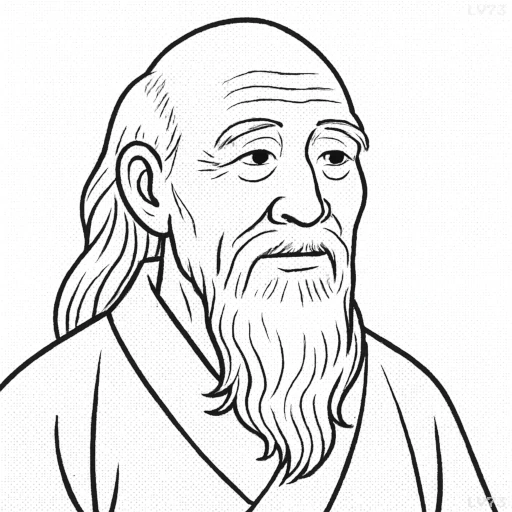“The sage does not hoard. The more he helps others, the more he benefits himself, The more he gives to others, the more he gets himself. The Way of Heaven does one good but never does one harm. The Way of the sage is to act but not to compete.”

- 571 BC? – 470 BC?
- Born in China
- Philosopher
table of contents
Quote
“The sage does not hoard. The more he helps others, the more he benefits himself, The more he gives to others, the more he gets himself. The Way of Heaven does one good but never does one harm. The Way of the sage is to act but not to compete.”
Explanation
This quote from Laozi speaks to the core values of selflessness, generosity, and non-competition as embodied by the sage—a wise and virtuous individual who aligns with the natural flow of the Dao (the Way). Laozi teaches that the sage does not seek to hoard resources or selfishly accumulate wealth or power. Instead, the more the sage gives to others, whether in terms of support, wisdom, or resources, the more they benefit personally. This idea is rooted in the concept of reciprocal generosity, where the act of giving creates a flow of abundance for both the giver and the receiver. The Way of Heaven—the natural laws of the universe—works in the same way: it benefits all without causing harm, and the sage mirrors this principle in their actions by promoting the well-being of others rather than engaging in selfish competition.
In modern life, this teaching encourages a mindset of service and generosity rather than accumulation or competition. The concept of giving to others, whether through time, resources, or kindness, not only enriches the lives of others but also enriches the giver in ways that cannot be measured by material wealth. This is particularly relevant in areas such as business, leadership, and personal relationships, where those who focus on helping others rather than competing for individual gain tend to create stronger, more collaborative environments. By embracing selflessness, the sage creates harmony and abundance in both their own life and the lives of others.
Laozi’s message also calls attention to the wisdom of non-competition—the sage does not strive against others, but instead focuses on acting in a way that benefits the collective whole. This is an important reminder in today’s competitive world, where the pursuit of success often encourages rivalry and comparison. Laozi’s philosophy invites us to focus on cooperation, collaboration, and acting in accordance with natural principles rather than constantly striving to win or outdo others. By doing so, we align ourselves with the Way of Heaven—a path that brings balance, peace, and mutual benefit.
Would you like to share your impressions or related stories about this quote in the comments section?
